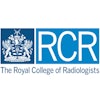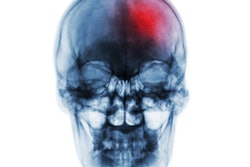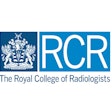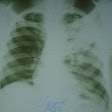SINGAPORE - AI is already changing the practice of medical imaging, and there's more technological growth to come, according to a plenary talk delivered May 4 at the International Society of Magnetic Resonance in Medicine (ISMRM) annual meeting.
Charlene Liew, MD, director of cardiothoracic imaging at Changi General Hospital in Singapore, outlined the current state of AI in radiology and where it is going in a presentation called "AI in Radiology: The Past Informs the Future."
"Today's radiology workforce stands at the vanguard of medical innovation, using cutting-edge technologies to improve patient outcomes," she said.
In the 2010s, Chinese-born American computer scientist Fei-Fei Li, PhD, built ImageNet, a dataset consisting of 14 million annotated images that allowed for advances in computer vision. More than a decade later, AI has taken hold in the healthcare enterprise, particularly in medical imaging: In fact, in 2022, 77% of AI tools approved by the U.S. Food and Drug Administration (FDA) were for radiology indications.
AI is now in all stages of the radiology workflow, from patient preparation, scan preparation and execution, and reading images and reporting results, Liew noted. Its impact on radiographer workflow ranges from detecting poor image quality on x-ray; automating CT imaging protocols; and for MRI, streamlining workflows for faster scan times, image reconstruction, and using synthetic MRI sequences.
"The advent of AI heralds a new era in healthcare, one characterized by the automation of tasks traditionally performed by radiologists and radiographers," she said. "AI systems are revolutionizing the delivery of medical care, offering unprecedented speed and accuracy to diagnosis."
Going forward, AI will continue to improve preclinical radiology workflow by automating measurements, segmentation, and longitudinal comparisons; generating heatmaps to detect abnormalities on imaging; and going beyond detection and triage to prognosis, patient outcome predictions, and diagnosis, Liew noted.
She listed ongoing issues departments should address as they integrate AI into their operations, including the following:
- Aggregating annotated big AI data in a cost-effective and secure way
- Integrating AI into clinical workflow and building trust in the technology among department staff
- Measuring the productivity and quality impact of the technology
"An AI deployment [process in radiology needs to take into account] the seamless orchestration of AI, explainable AI and smart reporting, and responsible AI," Liew said.
The goal is to ethically integrate human and artificial intelligence, according to Liew. She cited words from Albert Einstein -- "Concern for man and his fate must always be the chief objective, in order that the creations of our mind should be a blessing, not a curse" -- and encouraged session attendees to tackle the integration of AI into medical imaging with fortitude.
"Gather up your courage, because it's your turn to write history," she concluded.



















